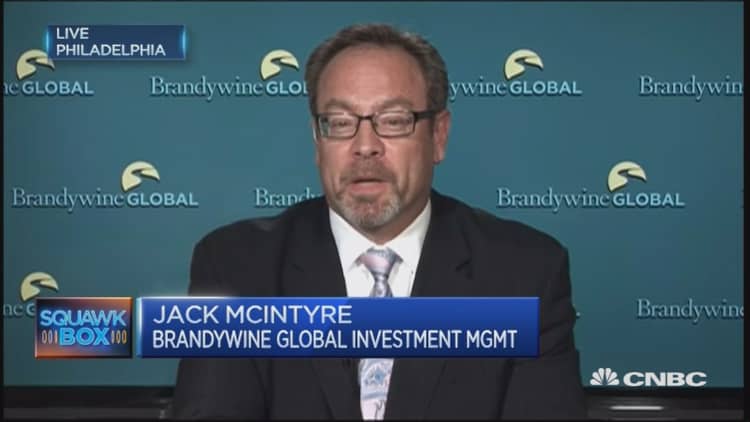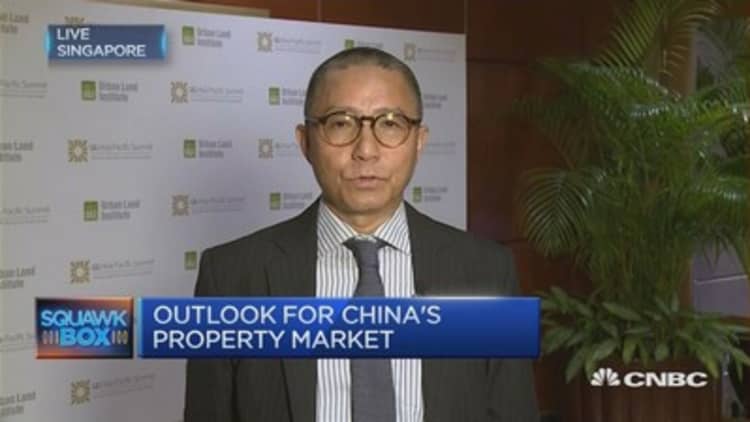A dispute over why Voice of America abruptly shut down an interview with a vocal critic of Beijing is raising questions about whether Chinese leadership influenced the U.S. broadcaster.
On April 19, taxpayer-funded Voice of America cut short a live interview with Chinese billionaire Guo Wengui — and
"I suspect somebody caved
Gong said Chinese authorities met with Voice of America's Beijing correspondent two days ahead of the April 19 interview and asked for its cancellation. Voice of America management then asked Gong to cancel the interview, or at least to shorten it to 15 minutes, she said.
Gong said management declined to cancel the interview in writing before it began, but then abruptly pulled the plug one hour and 19 minutes into the live conversation.
Why was the interview stopped while it was going on? You send a message to the audience that's watching.Robert Reillyformer director, Voice of America
Two of the other reporters on administrative leave, who did not wish to be identified, concurred with Gong's account.
Voice of America, however, disputes Gong's version.
"At no time was there any management consideration of not doing the interview, nor of cutting short an ongoing interview for any reason," the broadcaster said in a statement to CNBC. Voice of America confirmed that it put Gong and four other department employees on administrative leave.
Voice of America Director Amanda Bennett denied that Beijing influenced VOA's decision.
"It was not caused by the Chinese involvement. It was caused by our own recognition at a news meeting that an unusual interview had been scheduled," she told CNBC, arguing that Guo was making allegations that could not be verified. "It wasn't miscommunication, and the instructions were clear."
The Broadcasting Board of Governors, which oversees Voice of America, appointed James McGregor, chairman of
Gong characterized McGregor's role as "crisis management PR." Bennett said McGregor is "probably as neutral and respected and ethical as anybody in the field."
McGregor did not respond to a CNBC request for comment.
A law firm and the Broadcasting Board of Governors' internal security department are conducting two separate investigations, Bennett said.
Mission to encourage a free press
Voice of America was founded in 1942 to encourage freedom of the press beyond U.S. borders. The organization received $218 million in funding from
Bennett became
Bennett resigned from Bloomberg in 2013. She told CNBC she is "exceptionally proud" of the report on Xi and that it "was extremely controversial and at various times during the
This April when Voice of America began promoting its Mandarin-language interview with Guo, Chinese officials told the news organization that the planned program "was interfering with China's internal affairs," Gong said, noting the broadcaster has two visas for work in Beijing.

Among the
Guo is believed to have fled China for the United States in 2014.
The tycoon's deep involvement in Chinese government and business affairs has apparently given Guo plenty of inside material, which he disseminates to his more than 200,000 Twitter followers. A New York Times profile of him last week noted that while "some of his claims have been outlandish and easily debunked," others "have turned out to be accurate."
Guo did not respond to CNBC requests for comment.
Voice of America's Gong said her reporting and
The Chinese Foreign Ministry has called Guo a "criminal." On the day of the Voice of America broadcast, the ministry confirmed that it had asked Interpol to issue a "red notice" for Guo's arrest.
At 9 a.m. ET that day, the live interview in Mandarin began as scheduled before stopping shortly after an hour. The program had been planned as a one-hour televised broadcast, followed by two hours of internet
"As I understand it, there were several members of senior management who were viewing this as it was taking place," Robert Reilly, who served as Voice of America director until 2002, told CNBC. "Why was the interview stopped while it was going on? You send a message to the audience that's watching."
Watch: China property market



